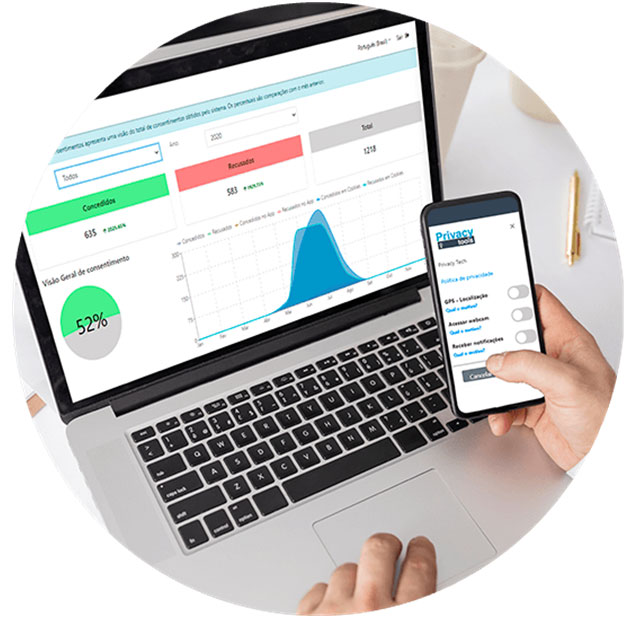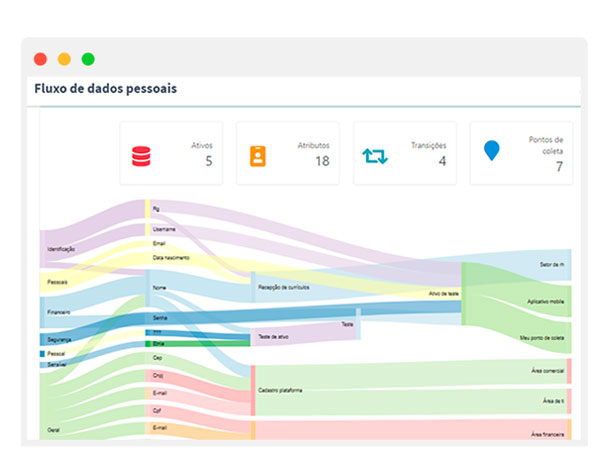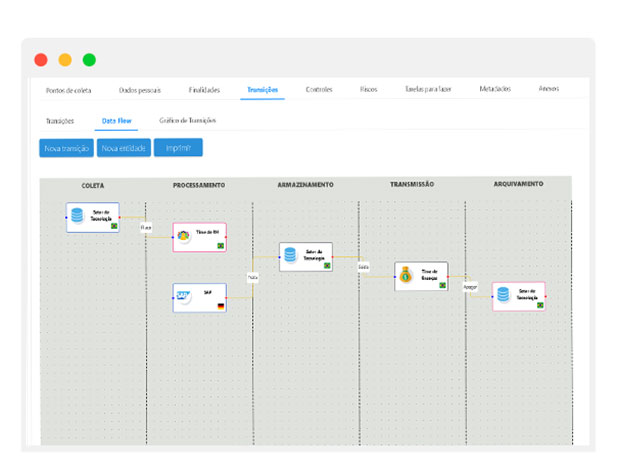Banco RCI Brasil and other Group companies implements a system for LGPD in Brazil.
To protect customer privacy, Banco RCI Brasil seeks to adapt the business to the General Data Protection Law (LGPD).
With the entry into force of the LGPD (General Data Protection Law) in September 2020, all companies began to prioritize adaptation projects to protect the privacy and data of their customers, users and consumers, including with compliance tools.
But not every company left it to the last minute, many have been working in this direction for a long time and today have the most advanced mechanisms, controls and systems aimed at compliance with the LGPDo that guarantees the best privacy practices for customers, employees and suppliers: We are talking about Banco RCI Brasil and other companies in the RCI Group.
It was in the mid-1920s when the legendary Louis Renault founded DIAC – Diffusion Industrielle et Automobile par le Crédit, that the history of the RCI Group in the world began to be written. This made consumer credit possible, even though, to many Frenchmen, it sounded like a distant American fad. Later, DIAC would become RCI Banque.
RCI Bank and Services is the financial arm of the Renault-Nissan-Mitsubishi alliance worldwide and is present in 36 countries.
In more than 36 countries and 5 continents, the bank aims to contribute to the growth of the group's brands. In Brazil, the group is present through Banco RCI Brasil (which provides investment and financing solutions for the Renault and Nissan brands), Consortium Administrator RCI Brasil (Consortium Renault and Consortium Nissan), Insurance Broker RCI Brasil and RCI Brasil Serviços and Participations (which includes the Group's subscription car rental service).


The adaptation project for the LGPD started in 2018, with the hiring of a specialized consulting company, creation of internal squads, training and definition of the DPO, that is, the person in charge of processing the Group's personal data. Choosing a tool for LGPD is a fundamental step, as it is with it that the privacy program will be better managed by those responsible.
In the case of Grupo RCI Brasil, the platform that most met their needs was Privacy Tools, a Brazilian company that already serves large companies in adaptation projects. The Privacy Tools platform delivers to the Group tools for managing cookies, service portal for holders, privacy in applications, data mapping, consent management, integration with various software, including SalesForce and other systems to reduce manual work as much as possible.
According to the DPO of the RCI Brasil Group, Maick Dias, regarding the choice of Privacy Tools: “We chose a national company that had a lot of flexibility for customizations and that could give us a differentiated service in building the best compliance model for the theme of privacy. There are many companies in the group, each with its managers and specific needs, we needed a partner not just a supplier.”
With a large volume of B2B2C business, the Group delivers services and financing for new and used vehicles to customers and to the network of dealerships of the Renault and Nissan groups. In addition, through its digital bank, Banco RCI Brasil offers interesting options for CDB investments to the entire public.

The Bank is also responsible for financing more than a third of Renault and Nissan's sales to end consumers, being one of the most active and representative automakers in the world.
It began operating in June 2000 and is the absolute leader among all banks that finance Renault and Nissan brand new vehicles in Brazil.
About PrivacyTools
PrivacyTools is a PrivacyTech, that is, a startup in the field of privacy, accelerated by Obr.global and is one of the pioneers in Brazil in offering solutions for LGPD.
The company aims to transform the way companies protect and manage the privacy of personal data and has 150+ companies such as Rede D'or, Banco RCI, Pague Menos, São João Pharmacies, Bom Jesus Group, University of Fortaleza, Synnex Corporation, among others.


For press vehicles, PrivacyTools solutions help maintain the privacy of those who browse online articles, by managing cookies that are authorized by readers, writing Privacy Policies and mapping the data about users that are collected and used to recognize and minimize the risk of leakage or misuse of information.